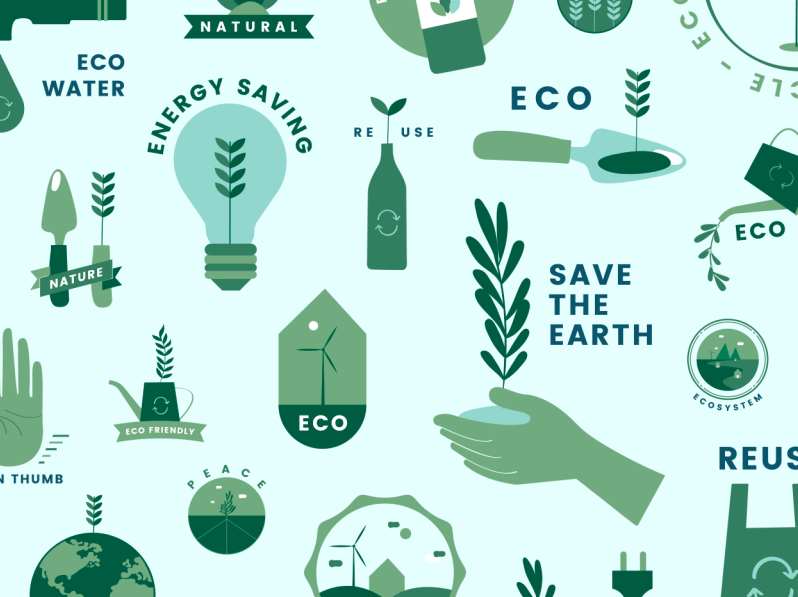An Eco-Friendly Lifestyle is Within Reach
Researching ways to live a more environmentally friendly life often means coming upon the somewhat toxic and extreme side of the online sustainable living community. These influencers garner media attention because of the extreme life choices they have made, but those same extremes go against the very reason they were made famous in the first place: for spreading awareness about sustainable living. These activists often try to live without any environmental emissions, documenting their journey on social media.
Take Lauren Singer, a trendy influencer who can fit her trash from the past few years into a small mason jar. This impressive feat attracts media attention and subsequently creates a precedent for what people who want to live environmentally friendly should do. While impressive, influencers like Singer actually make sustainable living seem unsustainable for the average person. To live in an environmentally friendly way simply means attempting to reduce waste and lessening one’s impact on the environment. Even though these activist’s extremes amass a disproportionate amount of media attention, there are still plenty of useful sites and social media accounts that can guide you to living a sustainable lifestyle.
If you look at how climate change is covered on the news, you often find stories on people like Singer. These environmentalists do a great job at living sustainably, but the reason they are on the news is because of how extreme their life changes have been. In an ideal world, everyone would put tens of thousands of dollars towards things like solar panels or buying an electric car, but due to multiple socio-economic factors, that is not a realistic expectation.
Instead of having a minority of people make huge life changes, it would be more beneficial for everyone to make small life changes. Living in an environmentally friendly way has become easier and easier as more resources become available on the internet. There are countless resources online, allowing you to find solutions that fit your situation. Below I’m going to talk about a few resources that really helped me realize what my environmental impact is and how I should combat that impact in my day to day life.
My favorite resource for environmental information is Monterey Bay Aquarium Seafood Watch. If you don’t eat seafood, this resource isn’t that helpful, but if you do, it provides shocking insight into the sustainability of seafood. The Monterey Bay Aquarium in California runs this program to help consumers understand what seafood products are sustainable and which one aren’t. You can enter the name of any seafood and the database will generate which species of that animal are “the Best Choice,” “Certified,” a “Good Alternative,” and which ones to avoid. These suggestions are based on multiple factors such as where the product was caught, how it was raised, its effect on its habitat, whether it’s an invasive species or not, etc. Even if you do not care how your seafood affected its environment, the Seafood Watch database will tell you how safe or toxic that product is for you to eat.
My second favorite resource is the Sustainability Consortium. Even though you need to become a member for full access to their site, they still provide interesting snapshots on how different products affect the environment. The Consortium analyzes products from beef to jam, offering a great overview on most things people will use in their day to day life.
Even if you don’t want to make any changes at your home, making changes at Mount Greylock will be just as impactful. Small actions like minimizing our use of paper towels, taking the bus to school, or even bringing your lunch in reusable plastics can make a huge difference in our school’s environmental footprint.
In short, making changes to be more environmentally friendly doesn’t need to be the life altering decision that the media tends to display. Everyone’s life is different, and what they can and cannot change is a product of that difference. All we can do as community members, but more importantly as citizens, is to educate ourselves on our own environmental impact and make changes accordingly.





